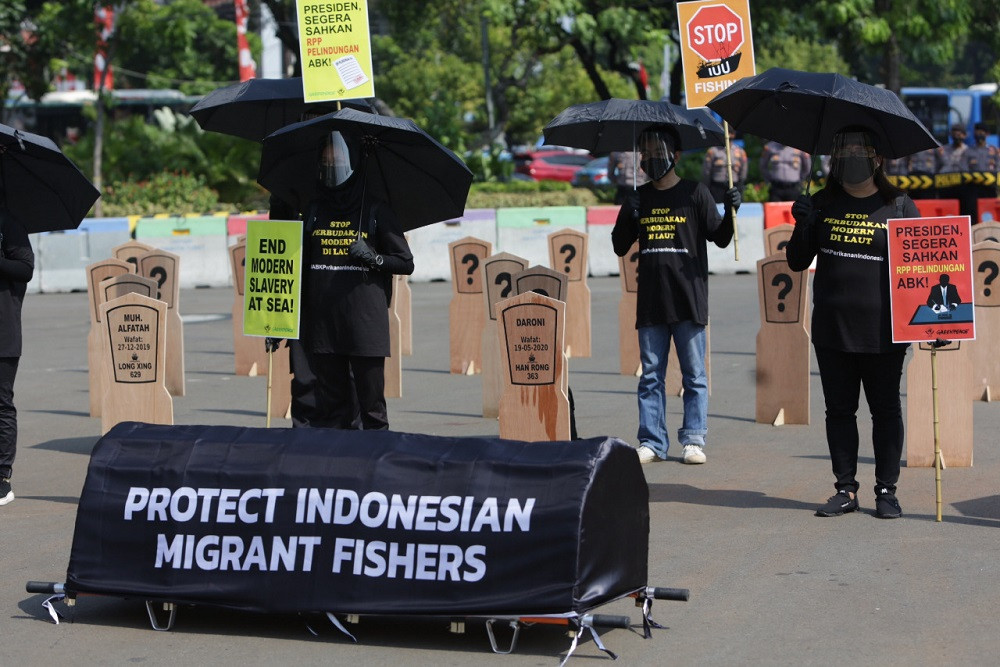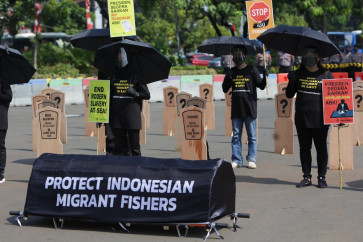Popular Reads
Top Results
Can't find what you're looking for?
View all search resultsPopular Reads
Top Results
Can't find what you're looking for?
View all search resultsThe strenuous odyssey: Safeguarding migrant fishers as migrant workers
Migrant fishers are vulnerable to human trafficking and forced labor, which requires comprehensive protection at every stage of their employment.
Change text size
Gift Premium Articles
to Anyone
“Every person shall have the right of recognition, guarantees, protection and certainty before a just law, and of equal treatment before the law,” reads Article 28D paragraph (1) of the Constitution. Migrant fishers, who are supposed to be recognized as migrant workers and protected by the law, sadly, have not seen the realization of the article. The state has failed to give the protection the migrant fishers deserve.
Abdul Rahmat is one of the many examples of migrant fishers, whose rights have been violated and cannot be restored.
Rahmat worked as a migrant fisher aboard a Taiwanese fishing vessel in 2011 for two years but received neither wages nor other entitlements from the agency and his employer due to bankruptcy. Rahmat sought justice by filing a report against the two parties with relevant authorities in Indonesia, including the Manpower Ministry. Unfortunately, until today Rahmat has not received any remedy.
Why did this occur?
The key reason lies in the historical practice of the placement of migrant fishers through companies without licenses, which the Manpower Ministry has left unaddressed. When the companies go bankrupt, the ministry cannot intervene and withdraw the deposits migrant fishers pay to fulfil their rights because the companies operate without licenses that are issued by the ministry.
Before 2017, the companies licensed by the ministry placed mostly land-based workers. Historically, Law No. 39/2004 on the placement and protection of Indonesian overseas workers defined “Indonesian overseas worker” as any Indonesian citizen eligible to work abroad in an employment relationship for a certain period by receiving wages. While this provision appeared comprehensive, the implementation of the law was biased toward land-based workers, neglecting sea-based workers.
Actually, there were regulations on the protection of sea-based workers, particularly migrant fishers. For example, in 2013 the National Agency for Placement and Protection of Indonesian Overseas Workers (BNP2TKI) issued the head of BNP2TKI Regulation on procedures for the placement and protection of Indonesian fishery seafarers on foreign-flagged vessels. However, this regulation was unenforceable as the 2004 law did not mandate it. The BNP2TKI served as the institution that implemented the law, but had no authority to issue regulations.



















